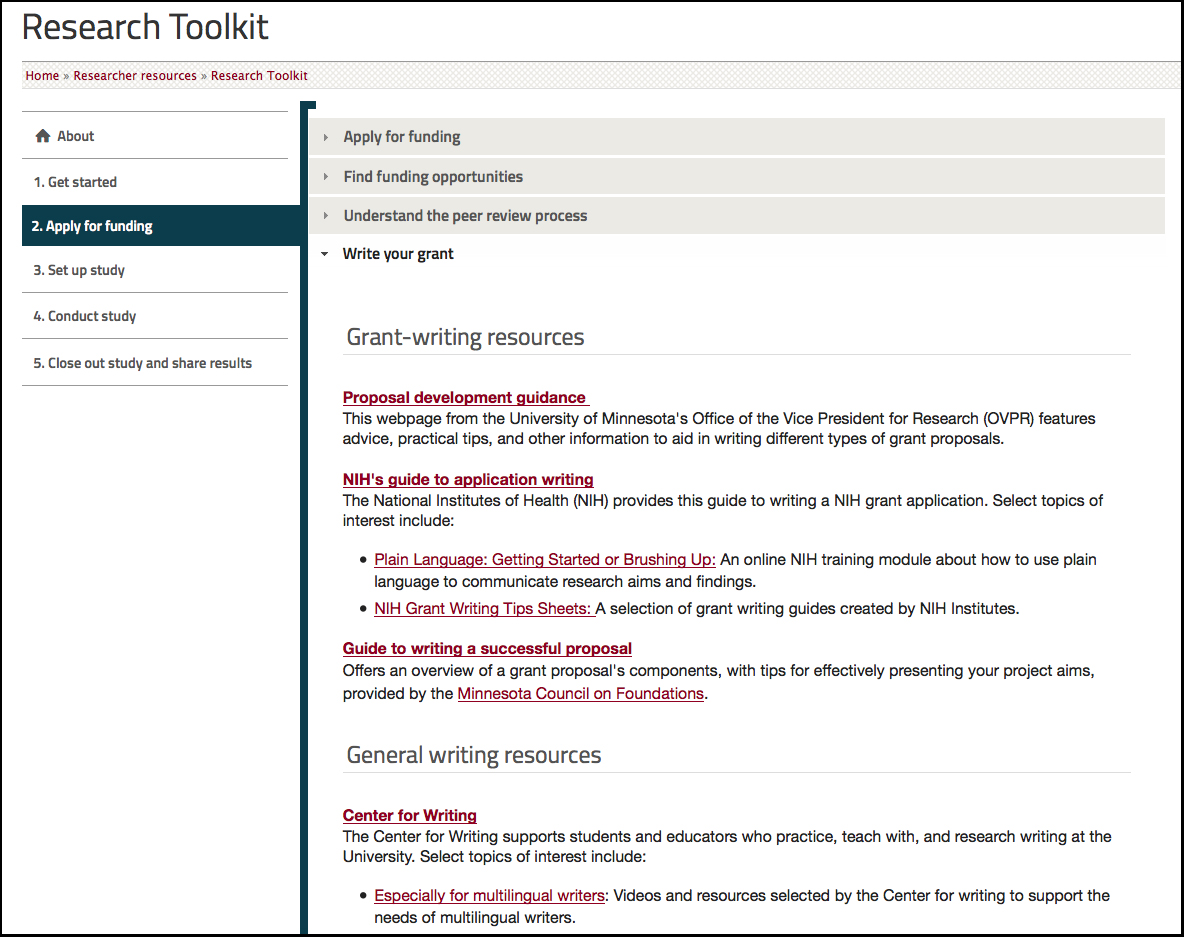University of Minnesota investigators and their teams have a simpler way to find the resources they need to conduct research, with the launch of the Research Toolkit on the Clinical and Translational Science Institute's (CTSI) enhanced website.
The new online resource houses research tools, templates, information, and guidance developed by a wide range of sources, from University organizations to federal agencies. The Clinical and Translational Science Institute spearheaded and manages the Research Toolkit, and worked with subject matter experts from across the Academic Health Center to curate content.

"We created the Research Toolkit to give health researchers a simpler way to navigate the University research process, and ultimately advance their discoveries," says Connie Delaney, PhD, RN, FAAN, FACMI, who directs CTSI's Biomedical Informatics function and oversees the Research Toolkit. "This supports CTSI's overarching efforts to create an integrated home for clinical and translational research, and help researchers be more successful."
Users can find what they're looking for by navigating the Research Toolkit's chronological study steps, each of which contains information about the various components of that step in the research process:
- Get started: Background research, clinical data access, finding collaborators, protocol development, and study feasibility
- Apply for funding: Funding opportunities, grant writing and submissions, and cost estimates
- Set up study: Budgeting, building your research team, IRB approvals, regulations, and recruiting research subjects
- Conduct study: Budget management, billing, ethics, and compliance
- Close out study: Closeout tasks, manuscript development, publishing, promotions, and dissemination
In addition, users can locate resources via the Research Toolkit's search function or by contacting CTSI's Research Navigator at [email protected] or 612.625.CTSI (2874).
"As CTSI's Research Navigator, I am committed to connecting investigators and their teams with expertise, services, and resources that can support their research," says Melissa Hansen, one of the key leads of the Research Toolkit initiative. "With the Research Toolkit, they have another option for finding what they need, when they need it."